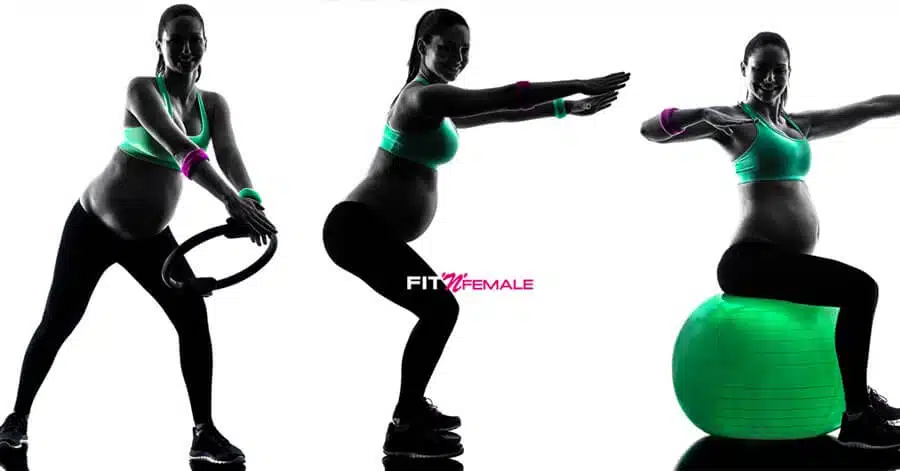During your Pregnancy have certainly been told a few times what you should and shouldn't do. Of course, this also applies to training. However, to avoid providing yet another list of tips that are more confusing than useful, we are taking a completely different approach. We want you to feel good about what you are doing and to understand what your body is trying to tell you with its signals. This way you can stay active during pregnancy without any problems.
Accordingly, we do not want to exclude any explicit exercises, because what works in practice varies from person to person. You can therefore decide for yourself and avoid exercises that have the following characteristics.
Exercises that cause pain or discomfort
If you feel pain during or after an exercise, this is an unmistakable sign that your body is not comfortable with this particular exercise. Pain usually occurs in the front of the pelvis, in the sacroiliac joint, in the lower back or in the knees. For example, if you notice pain or stiffness in your lower back after completing kettlebell deadlifts, this is an initial indicator that you may need to remove this exercise from your program. However, before you eliminate an exercise for good, you should first rule out other sources of error. For example, exhale forcefully before you enter the concentric movement phase or set the Kettelbells slightly higher. If the discomfort still occurs, it is time to replace the exercise, at least during pregnancy.
Exercises that cause urine to leak
Leaking urine during exercise is definitely not normal. However, this phenomenon is something that occurs more frequently during pregnancy. Even if this should not become the norm, urine is more common during jogging, heavy deadlifts, pull-ups and very intensive abdominal training. Again, this does not generally mean that you have to ban an exercise from your training plan during your pregnancy. See it as a warning signal from your body, which is trying to alert you to a problem. What usually helps very well in this situation is to reduce the intensity of your training. For example, try using significantly less weight when deadlifting or making your running technique a little softer and slower. Only if there is no improvement even after fine-tuning is it time to take action.
Exercises that constantly give you the feeling that your stomach is pushing outwards
As you get further along in your pregnancy, you'll definitely start to feel like your belly is coming to the fore in every conceivable situation. But that's not what we mean. It's more about avoiding exercises where you feel constant pressure on the abdominal wall. It's not about the pressure that your abdominal muscles generate, but about the pressure that causes you to hold your stomach. This usually applies to exercises such as push-ups or the forearm support. To reduce the uncomfortable pressure, you should position your upper body slightly higher, for example by leaning on a bench.
Exercises that create uncomfortable pressure in the perineal area
As soon as you feel uncomfortable pressure in the perineal area during an exercise, you should proceed with particular caution, as this can have a direct impact on the long-term health of your pelvis. The feeling of pressure is due to the fact that the perineum cannot properly withstand the counter-pressure that occurs during a particular exercise. If you have this feeling when bending over during a squat, for example, you should first try to breathe more consciously. Breathe in deeply as you go down and exhale slowly but forcefully as you straighten up again. If concentrating on your breathing does not bring about any long-term improvement, remove these exercises from your workout program. Otherwise, keep them in your training plan.
Exercises you don't want to do
This is actually the simplest rule of all, as it includes all exercises that you don't really want to do during your pregnancy because you want to take it easy on yourself and your baby. And that's a good thing, because there's no order for consistent training during pregnancy. Listen to your body and decide for yourself how far you want to go. Decide for yourself which exercises you want to do and from which week of pregnancy you generally want to stop exercising. Take it easy, because it's about you and feeling good, not about proving something to someone else.










